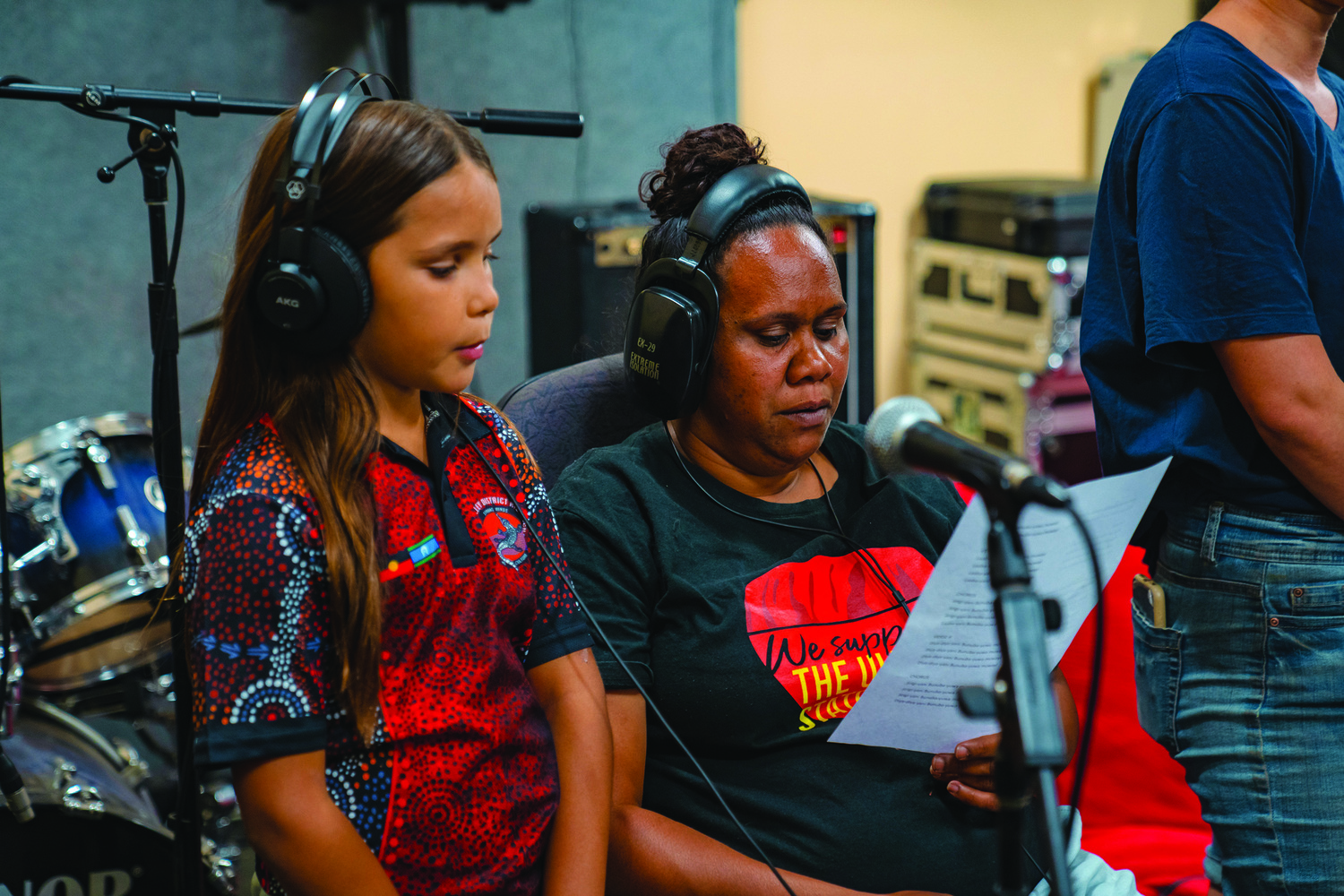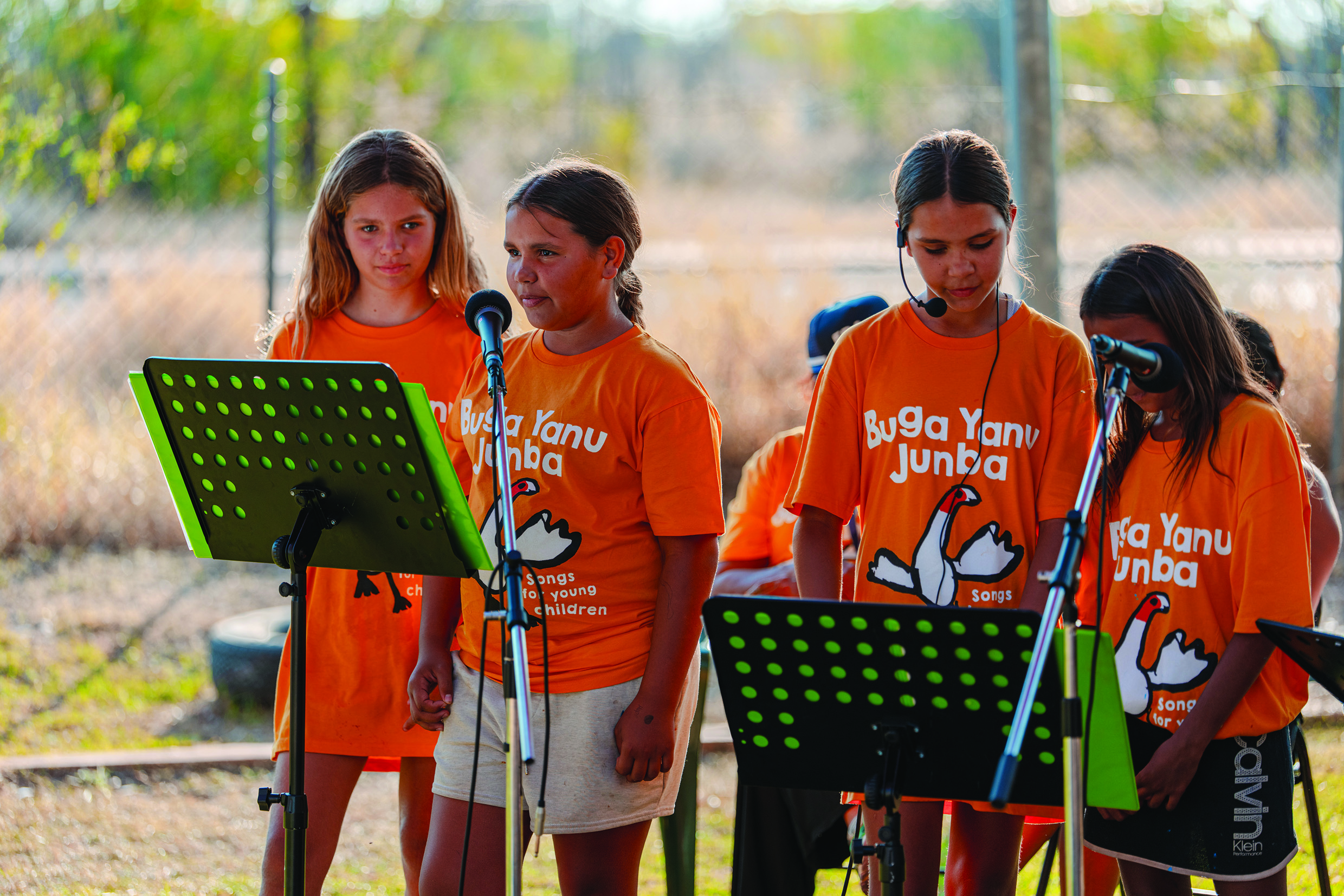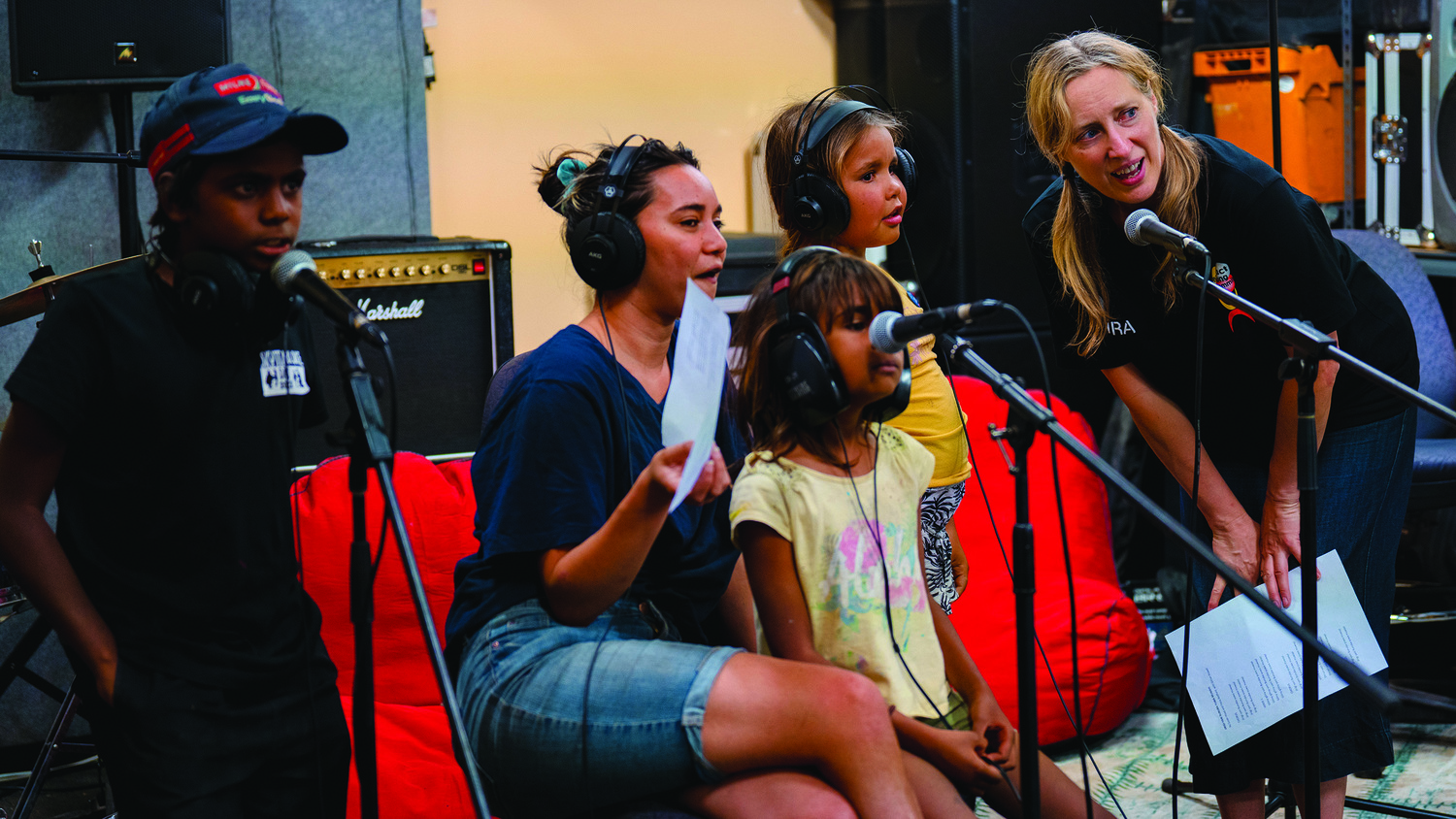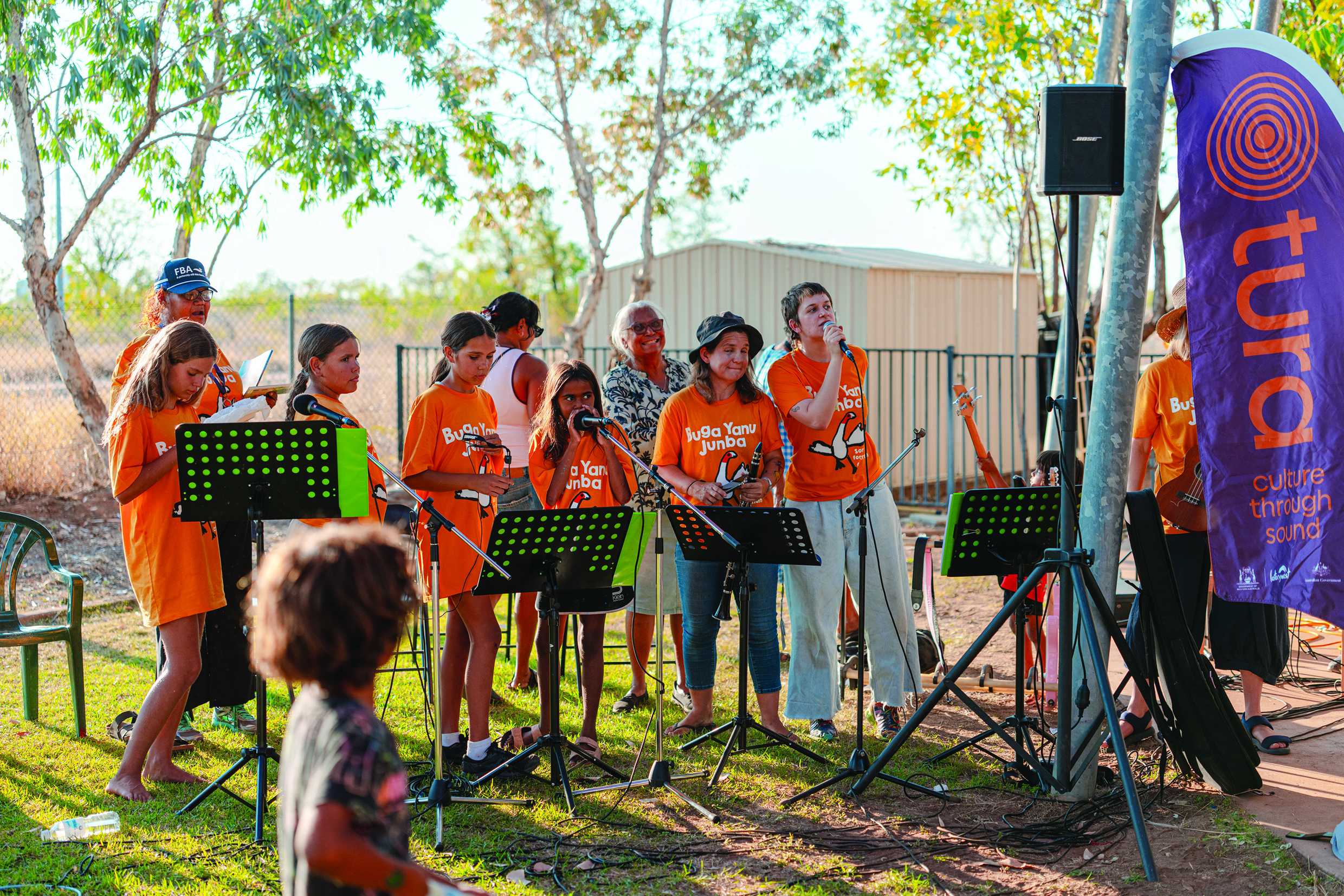 An early years album made in Fitzroy Crossing is not only preserving and sharing language but also supporting wellbeing.
An early years album made in Fitzroy Crossing is not only preserving and sharing language but also supporting wellbeing.
By Ara Jansen
While plenty of people consider music to have healing powers, in a Kimberley community it has also become a way to share and preserve Indigenous language, support language development and add to children’s wellbeing.
Buga Yanu Junba has been a multi-year project resulting in a joyful 22-track album of songs for young children and an illustrated companion songbook.
Sung in the languages of Bunuba, Gooniyandi, Walmajarri, Kimberley Kriol and English, the album celebrates language and culture as well as being a practical tool for early years learning.

Many of the songs were created through a research project, where songwriting in local languages was trialled to support children’s wellbeing and language development.
The original collection was written and recorded by Fitzroy Valley educators from the Marninwarntikura Women’s Resource Centre and the Baya Gawiy Children and Family Centre as part of Tura’s Sound FX program – an award-winning intercultural initiative exploring music, storytelling, cultural knowledge and language through long-term collaborations in the Kimberley.
The songs cover a variety of topics such as sustainability of the land, the return of the brolgas at each hot season and family gatherings, not overfishing and the different types of fish in the Fitzroy River.

Research undertaken during the project has shown that singing these new songs supports wellbeing. Educators observed enhanced feelings of calm, safety, connection and engagement among children when the songs were sung – outcomes that speak directly to the links between music and mental health.
Project lead Dr Gillian Howell says because of the length of the project, the early years educators were able to share the songs with the children as they went along to see how they were reacting. They also tried them out on the local radio station to get feedback.
The musician and researcher says Buga Yanu Junba has also been a wonderful opportunity for generations to connect through song and music, as well as numerous singers finding their voices for the first time.
“One woman also used the project as an opportunity to become fluent in her language and connect better with her Elders, which she hadn’t been able to do.
“Making music is something very human and it’s something we have always done. The sense that you are not good enough can strangle your breath. People also carry a lot of emotion around music, similar to how they carry emotion around language.”

The project has been a collaboration between educators, families, Elders, musicians, language custodians, researchers and cultural advisors.
Gillian says embedding language with care for each other is something that can carry through generations and the more people become familiar with language carries everyone along.
These songs are more than just music – they are sources of cultural knowledge, central to the care and nurturing of Baya Gawiy’s children and their families.
Published by the Indigenous Literacy Foundation, the companion illustrated songbook extends the songs’ reach with lyrics, chords and notation, in-depth translations and introductions from each songwriter.
There are even karaoke versions of each song, a valuable tool for educators or families singing along at home.
Stream the Buga Yanu Junba album for free at tura.com.au and buy the songbook from bookstores.
Want more news, clinicals, features and guest columns delivered straight to you? Subscribe for free to WA’s only independent magazine for medical practitioners.
Want to submit an article? Email editor@mforum.com.au

